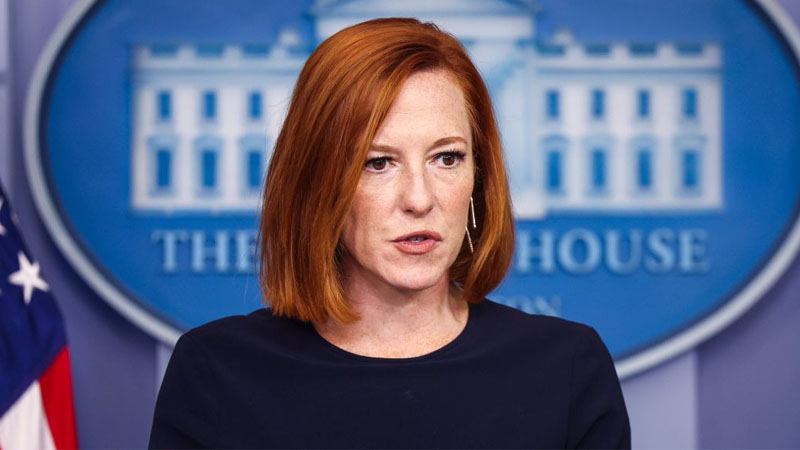Jen Psaki, a familiar face on MSNBC and former White House press secretary, recently sparked a discussion by highlighting the potential hurdles third-party candidates, particularly Robert F. Kennedy Jr., could pose for President Biden’s quest for reelection.
Her commentary, featured in The Hill delves into the intricate role these candidates play in the broader spectrum of American electoral politics, especially with the impending 2024 presidential race on the horizon. The involvement of third-party candidates in U.S. elections has often stirred debates, with many viewing them as disruptors capable of tilting the scales, sometimes unfavorably, against mainstream party contenders.
Their campaigns, while resonating with niche voter groups, tend to divert crucial votes from leading candidates, thereby influencing the final election outcomes in ways that are not always predictable. In the context of the upcoming election, the spotlight on Robert F. Kennedy Jr. as a potential third-party candidate introduces a new dimension to the electoral dynamics.
“If you look at RFK Jr., it’s the name recognition issue,” Psaki said on MSNBC’s “Morning Joe,” noting that the Kennedy name was particularly loved in Georgia, which is a key battleground state in Biden’s rematch with former President Trump.
Kennedy, with his prominent environmental advocacy and the legacy of the Kennedy political lineage, could potentially sway voters who are critical of the Democratic Party’s stance on environmental issues. His candidature might draw the environmentally-conscious and progressive factions within the electorate, thus diluting support for President Biden.
Psaki’s description of third-party candidates as a “huge, huge, huge problem” mirrors the apprehension within Democratic circles regarding the splintering effect these candidates could have on the party’s unified front. Amidst an environment where President Biden is already navigating through criticism from progressive quarters for perceived inadequacies in addressing key issues like healthcare reform and climate action, the entry of a formidable third-party candidate could further strain the party’s cohesion.
The influence of third-party candidates, however, is nuanced and extends beyond merely pulling votes from major-party candidates. They also serve as a conduit for voters disenchanted with the binary choices presented by the major parties, offering an outlet for protest votes against the prevailing political establishment. This dynamic was notably visible during the 2016 presidential election when candidates like Gary Johnson and Jill Stein captured the attention of voters dissatisfied with both major party nominees.
Looking ahead to President Biden’s re-election campaign, the degree to which third-party candidates like Kennedy might impact the outcome hinges on various factors. These include the vigor of Kennedy’s campaign, his appeal among disaffected voters, and the prevailing political climate as the election draws closer. Should Kennedy’s campaign gain substantial momentum, it could indeed present a formidable challenge to Biden’s re-election aspirations.
To navigate the potential turbulence caused by third-party candidacies, the Biden campaign and Democratic Party strategists will need to focus on galvanizing their base while extending their outreach to undecided and independent voters. This strategy may involve underscoring President Biden’s achievements in office, rallying support around critical policy proposals, and emphasizing the high stakes involved in the election, particularly concerning healthcare, economic stability, and environmental sustainability.
Moreover, directly addressing the underlying issues that might drive voters towards third-party options is crucial. By convincingly addressing voters’ concerns on matters such as healthcare accessibility, climate change, and economic disparities, President Biden could potentially reduce the allure of third-party candidates like Kennedy.
As the 2024 presidential election unfolds, the role and impact of third-party candidates will undoubtedly remain a focal point of discussion and analysis. While their influence on the election’s outcome remains to be seen, their presence underscores the dynamic nature of American democracy and the ongoing pursuit of broader representation and systemic change within the political landscape.



